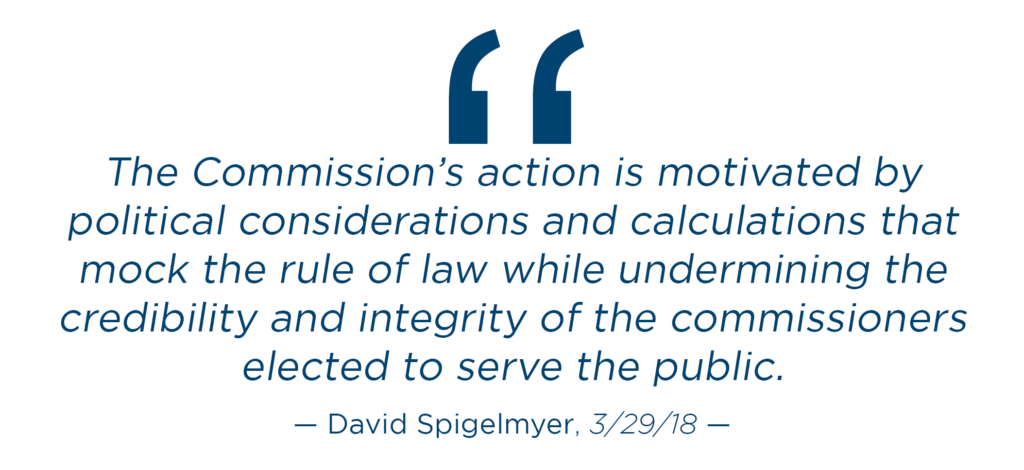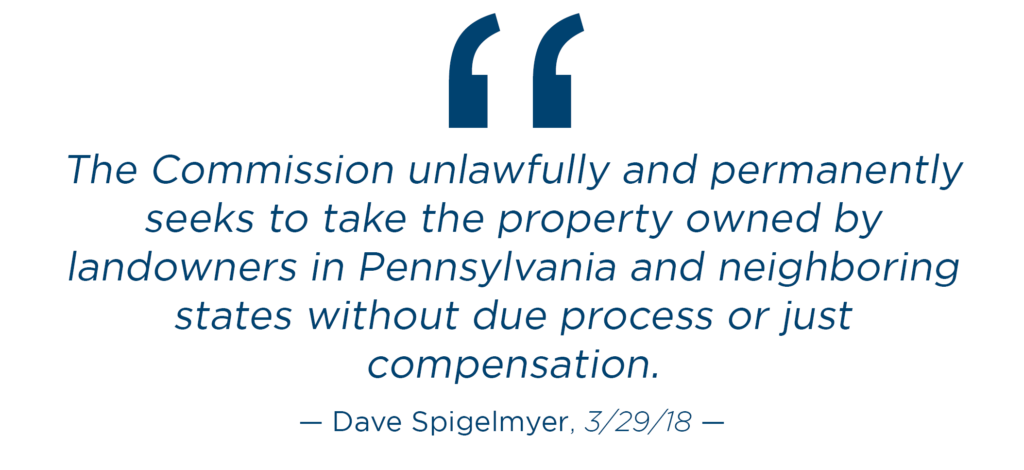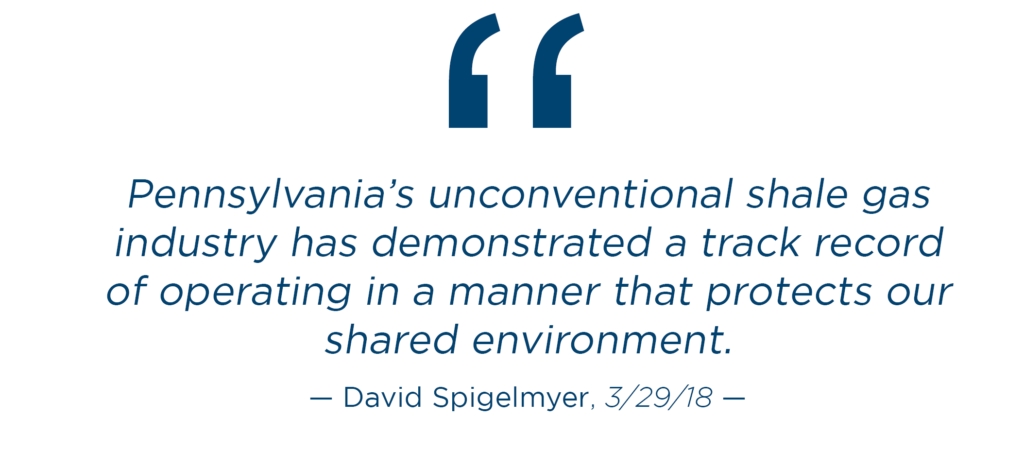The Delaware River Basin Commission’s proposed ban on safe, responsible natural gas development “improperly infringes on property rights” and is motivated by political considerations instead of being based on sound science, the Marcellus Shale Coalition said in a public comment filed today. MSC’s submission of testimony to the commission comes as the comment period closes on the multi-state regulatory body’s proposal that, as MSC president Dave Spigelmyer wrote, “falsely asserts that natural gas cannot be developed safely within the watershed.”
For example, according to water monitoring data in the Susquehanna River Basin – a key drinking water resource just west of the Delaware River – natural gas development in that basin has had no effect on water quality or quantity. What’s more, Pennsylvania’s top environmental regulator told lawmakers last week that “we have very good oil and gas regulations.”
With the DRBC’s significant overreach, it begs the question, Would The Present-Day DRBC Have Let Washington Cross the Delaware?
Here’s what you need to know from MSC’s comments:
LACK OF AUTHORITY

“To prohibit the development of this critical energy resource, as the Commission seeks to do, defies common sense, sound science, responsible policymaking, and perhaps most importantly the authority of the Commission and the United States Constitution. It improperly infringes on the property rights of thousands of property owners within the basin and relegates them to second-class citizens while depriving their families and communities of the economic opportunities that rightfully belong to them. The Commission’s action is motivated by political considerations and calculations that mock the rule of law while undermining the credibility and integrity of the commissioners elected to serve the public.”
“The DRBC has no authority to prohibit so-called High Volume Hydraulic Fracturing permanently in the basin. Not only does the plain meaning of the Compact preclude finding that DRBC has such authority, but the long-standing history and negotiations of the Compact offer clear evidence that neither Congress nor the DRBC Compact States intended for the DRBC to have the authority to ban any industrial, commercial or residential use of land in the basin.”
VIOLATION OF U.S. CONSTITUTION
“Such a ban would effectuate a categorical regulatory taking of the property interests of gas-only property owners, and would also effectuate a regulatory taking of property from individuals who own both the gas and the surface estate. … The proposed permanent ban would represent the epitome of an illegal taking. The proposed permanent ban, in addition, would violate both the due process and equal protection principles of the Fifth Amendment.”
LACK OF DELIBERATIVE PROCESS

“It is clear that a majority of commissioners have already made up their political minds on this matter. … The DRBC is legally obligated to review and consider fairly the comments submitted to it, without harboring prejudice. Public statements by commissioners of the DRBC that a ban on hydraulic fracturing is a foregone conclusion demonstrate that this rulemaking is not undergoing a deliberative process, open to modification or withdrawal, as required under the rulemaking procedures of the Commission.”
“Pennsylvania Governor Tom Wolf demonstrated the blatant political motivation of this rulemaking by stating that he ‘supported this resolution since [he] was a candidate for Governor of Pennsylvania.’ Such a statement renders consideration of any actual science and data moot, while relegating the public comment period to a charade. Ironically, Governor Wolf recently extended an agreement with the state governments of Ohio and West Virginia to enhance regional cooperation and further the development of natural gas within the Appalachian Basin.”
FAILURE OF DUTY
“The Commission has failed in its most fundamental responsibility: to allow reasoned science and the interests of the citizens it represents to guide its actions and decisions. The Commission unlawfully and permanently seeks to take the property owned by landowners in Pennsylvania and neighboring states without due process or just compensation. It substitutes the political interests of elected politicians for the inherent rights of the citizens they represent by asserting falsely and without justification that natural gas cannot be developed safely within the watershed.”
SAFE, WELL-REGULATED PRODUCTION
“While the DRBC has failed to take any action over the past eight years to finalize a regulatory framework for shale gas development, Pennsylvania has taken significant actions to create a world-class program [and critical policy advancements] to develop these resources safely.”

“This situation evinces an inherent lack of faith in the women and men of Pennsylvania’s regulatory agencies, including the PA DEP, to oversee this activity and protect Pennsylvania’s water and other natural resources.”
“These tremendous opportunities [from shale gas] come with a collective responsibility to protect the environment in a manner firmly grounded in the law and sound science. … MSC’s members have already spent hundreds of millions of dollars on industry-specific environmental and responsible practices to ensure that their operations meet or exceed stringent regulations already imposed by state and federal agencies. With an environmental compliance rate of nearly 97%, operating under some of the most stringent and rigorous environmental standards in the nation, Pennsylvania’s unconventional shale gas industry has demonstrated a track record of operating in a manner that protects our shared environment.”
“On multiple occasions, Pennsylvania’s oil and gas oversight program has been independently reviewed by the State Review of Oil and Natural Gas Environmental Regulations (STRONGER) organization. Each review has been accompanied by high marks regarding the efficacy of the Commonwealth’s oversight of oil and natural gas development, and indeed many jurisdictions throughout the nation – and around the world – have modeled their standards after those of Pennsylvania.”




